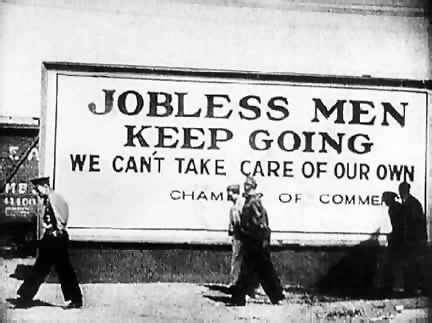Even Worse For Young Workers
By BOB HERBERTNY TIMES
The employment situation in the U.S. is, if anything, worse than most people realize. And huge numbers of young people, ages 16 to 30, are being beaten down in ways that could leave scars for a lifetime.
Much of the attention in this economic downturn has focused on the growing legions of men and women who are officially counted as unemployed. There are now more than 11 million of them.
But a better picture of the economic distress related to employment emerges when the number of jobless Americans is combined with two other categories of workers: the underemployed (those who are working part time, for example, because they can’t find full-time work) and the so-called labor force reserve, workers who have abandoned their job searches but who would work if employment became available.
This total pool of underutilized labor has now risen above 24 million, according to researchers at the Center for Labor Market Studies at Northeastern University in Boston. That total will only grow in the coming months.
The Obama administration has more than enough on its plate at the moment, but before long it will likely have to consider a range of additional strategies, beyond the recently passed stimulus package, for putting jobless Americans to work.
A comparison of the number of people being thrown out of work in this recession with that of the severe recession of 1981-82 will indicate why. The peak unemployment rate was higher in that earlier recession than today’s 7.6 percent, largely because the last big wave of the baby-boom generation was entering the job market in the early ’80s. Those boomers who couldn’t find work were officially counted as unemployed.
What is different and more frightening about the current downturn is the number of people actually losing their jobs — being laid off or fired. That number is dramatically, dangerously higher.
The government uses two different surveys to gauge employment data. The household survey, based on telephone interviews, showed that job losses in the 13 months that followed the beginning of the 1981-82 recession reached 1.53 million. In the first 13 months of this recession, the number of jobs lost, according to the household survey, has been a staggering 4 million.
The payroll survey, which is based on employment records, showed job losses of 1.7 million in the first 13 months of the earlier downturn compared with 3.5 million in the current recession.
Pick your poison. This is not the kind of downturn Americans are used to.
The ones who are being hit the hardest and will have the most difficult time recovering are America’s young workers. Nearly 2.2 million young people, ages 16 through 29, have already lost their jobs in this recession. This follows an already steep decline in employment opportunities for young workers over the past several years.
Good jobs were hard to find for most categories of workers during that period. One of the results has been that older men and women have been taking and holding onto jobs that in prior eras would have gone to young people.
“What we’ve seen over the past eight years, for young people under 30, is the largest age reversal with regard to jobs that we’ve ever had in our history,” said Andrew Sum, the director of the Center for Labor Market Studies. “The younger you are, the more you got pushed out of this labor market.”
There were not enough jobs to go around before the recession took hold. So the young, the poor and the poorly educated were already suffering. Now that pool of suffering is rapidly expanding.
This has ominous long-term implications for the country. The economy cannot perform well with such a large cohort of young people condemned to marginal economic status.
Young men and women who remain unemployed for substantial periods of time find it very difficult to make up that ground. They lose the experience and training they would have gained by working. Even if they eventually find employment, they tend to lag behind their peers when it comes to wages, promotions and job security.
Moreover, as the economy worsens, even the college educated are feeling the crunch.
According to a report by researchers working with Mr. Sum: “While young college graduates have fared the best in maintaining some type of employment, a growing fraction of them are becoming mal-employed, holding jobs in occupations that do not require much schooling beyond high school, often displacing their less-educated peers.”
Employment problems have festered in the United States for decades. The economy will never be brought to a state of health until those problems are more thoughtfully and more directly engaged. This will become more and more clear with each passing month of this hideous recession.

No comments:
Post a Comment